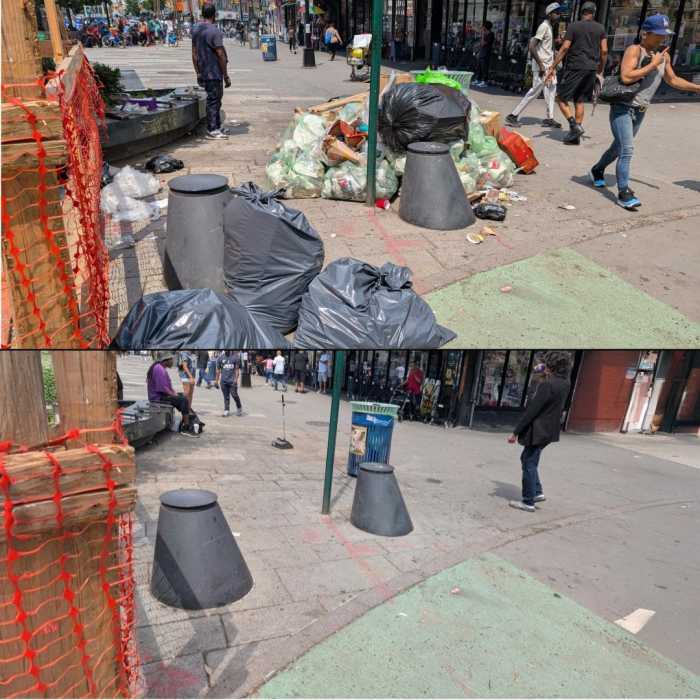By Ed Koch.
“Un Secret” (+)
This extraordinarily poignant film, based on an eponymous novel by Philippe Grimbert, depicts the Nazi victory over France and its effect on the French Jews living in Paris and occupied France. While watching it I found myself thinking, “It could happen again.” Anti-Semitism is at an all-time high in France, England, and elsewhere in Europe.
The movie opens with a family of the athletic parents: Maxime (Patrick Bruel), his wife Tania (Cecile de France), and their introverted son, Francois (Valentin Vigourt). Francois, clearly a disappointment to his father, lives in a dream world imagining an older brother whom he invites to sit with him at the dining room table. We soon learn that Maxime was married before WWII to Hannah (Ludivine Sagnier), and the couple had a son by the name of Simon (Orlando Nicoletti). Flashbacks are used to depict the characters before the war and to bring to the fore Maxime’s secrets, one of which was his attraction to Tania, then married to his future brother-in-law, on the day he was married to his first wife, Hannah.
Newsreels are shown of Adolf Hitler and of Jews attempting to escape from occupied to unoccupied France, where conditions were better. Jews are also shown marching toward their deaths in concentration camps. Auschwitz is mentioned as the location where many of them were taken and murdered.
Tania, Maxime and Francois do not use their Jewish family name. One of the most potent scenes for me was when Francois at the age of 14 (now played by Quentin Dubuis) is taken to the church by his mother and baptized. When a member of the extended family remarks that he has now been circumcised and baptized, another urges that the grandparents, who occasionally speak Yiddish, not be told of the baptism. (As an adult, Francois is played by Mathieu Amalric.) Another especially poignant scene involves the French police arresting a family member seeking escape from unoccupied France. The story is told by Francois as an adult.
After the movie, director Claude Miller addressed the audience. He stated he originally agreed with the executive order of French President Nicolas Sarkozy requiring that every French child learn of the Holocaust and that each be given the name and history of a Jewish child who died in the Shoah. On reflection he decided it was wrong asking, “Why the Jews? What about others?” He then cited several genocidal situations, e.g., the Armenians, et. al.
At that point someone in the audience began to applaud and my stomach turned. I wanted to stand up and say there is a difference. In the case of the conspiracy to kill the Jews, the order was to kill every infant, child, man and woman on the continent of Europe occupied by the Nazis, with a plan to do the same to every Jew in the world: The Final Solution. Children could not be adopted. No Jew could convert or be spared. That is not true of any other genocidal action of yesterday or today including that in Tibet, Darfur, Rwanda, Kosovo, et. al. I decided not to say anything so as to avoid an incident or unpleasant situation for the audience or the director, who only speaks French. No mike was provided to the audience and all questions translated by an interpreter. But I was wrong. We must speak up if we are to stop the escalating attacks against the Jews.
“Un Secret” is one of a half-dozen French films being show on a rotating schedule at the IFC Center located at 6th Avenue and 3rd Street. (In French with English subtitles.)
HS said: “The movie is everything Mayor Koch said it was. Poignant is the best one-word description. The story of the Holocaust is boring to some people and annoying to others, even Jews. Yet it must be told and retold, like the flight from Egypt. Already there is a head of state who denies it ever happened – the mad Iranian, who may not be considered so mad if his lies ultimately prevail. The movie is well worth seeing, particularly for its depiction of family tensions while tragedy looms. It is a far deeper film than ‘The Counterfeiters,’ which we saw last week—less entertaining but more disturbing and in the end more rewarding.”





























